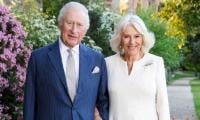NEW DELHI: The future of a site that has sparked thousands of deaths in inter-religious violence is set to be decided in coming weeks after India’s top court wrapped up hearings in one of the country’s longest-running cases. Hindus believe that Lord Ram, a major deity, was born at the site in the northern city of Ayodhya, and that a Muslim conqueror destroyed a temple there in the 1500s and built a mosque in its place. In 1992 a Hindu mob reduced the mosque to rubble, triggering some of the worst inter-religious violence since independence in 1947 and in which 2,000 people perished. In 2002 Hindu activists were burned alive in a train returning from Ayodhya, sparking riots that left upwards of 1,000 people dead, most of them Muslims. The hearings ended in drama on Wednesday, as Rajeev Dhawan, a lawyer for one of the Muslim parties in the case, tore up a map purportedly showing the temple existed in ancient India. Another lawyer, who is in his 90s, has been representing the infant Lord Ram in the case. Under Indian law, a Hindu deity is considered a “juristic person”. The five judges in the Supreme Court are due to decide how the 2.77-acre (1.1-hectare) site should be divided in a verdict expected by November 17.
Indian Central Reserve Police Force personnel patrol a street in downtown Srinagar, Indian Illegally Occupied Jammu &...
The name and logo for the Consumer Financial Protection Bureau is seen scraped off the door of its building in...
A view of a signboard of a British Steel's Scunthorpe plant, in Scunthorpe, northern England, Britain, March 31, 2025....
Bangladeshi garment workers make clothing in the sewing section of a factory in Gazipur, Bangladesh, April 9, 2025....
Displaced Sudanese women and children gather at a camp near the town of Tawila in North Darfur on February 11, 2025....
Brazil's ex-president Jair Bolsonaro at the armed forces hospital in Brasilia, July 14, 2021.—ReutersNATAL, Brazil:...







